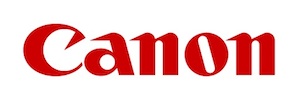Interviewer: This is Randy Davidson, President of WhatTheyThink and we’re at the NAPL Conference, the top management conference, her with David Harding. David, why do you come to the NMC Conference?
David Harding: Well, this wouldn’t make them happy, but the number one reason I come is to do the networking with Pierce. Because we’re all in the same boat, we all have similar problems and alone we’re dumb, but together we’re smart and we can pool our ideas and get the best practices and figure out what’s best for our business based on what other people are doing.
And then secondly, it’s a chance to get away from the office, hear some new thinking, and while you hear that new thinking you get ideas that come to you and you can go back and can implement. So many of us gets stuck in the trees and the trees crowd us, but coming out to something like this, you are taking a break from the office and you can really see above the trees, if you will, and kind of see your business from a different perspective. Then the key is in how well do you execute, and a lot of businesses don’t do very well at executing. But if you have a good execution system back home, you’ll come away with some things and some ideas too and it will well pay for any trip you take when you learn a new stuff.
Interviewer: Well, that’s one of the things I like about the TMC Conferences is that not only do they have a great program, but many of the presenters are actually members of NAPL and printers like yourself, and you gave an interesting session just a few moments ago. Tell us a little bit about what you talked about to the other members of NAPL.
David Harding: Well, to some people it might be boring, and to some people they – unfortunately a lot of businesses don’t care as much as they should about this topic, but we talked about employee surveys and how you can use them to improve the performance of your company.
When you’re getting feedback from the employees on a regular basis, maybe the same questions you use every year, you now have some benchmarks to see whether you as a management team are doing a good job of improving the performance of your company. For example, you might have questions seeded in an employee survey that asks the employee, in the last year my manager gave me feedback on how well I did on my job; or I talked to my manager about my goals, or my manager represented this, or whatever. And you can use those questions on a score of zero to 100 for the manager’s review now to show how well the manager did at handling your company values or your company’s strategies or tactics.
You could break it down by department, the employee surveys. You could make it a part of your performance reviews, as I mentioned earlier, and it can be a real valuable feedback on developing execution strategies to make your business better. One of the things we suggest you do, for example, is have a focus group with groups of employees, small groups of employees, and make it somebody who’s going to make those employees comfortable and get them to talk to give you ideas on how you can make your business better in an area where you may have scored low.
One of the things we scored low early on was that our managers do a good job of interpreting policies within the company. So then we asked the employees, well that was scored low, what can we do to improve that? And they gave us seven or eight ideas, which we implemented. And guess what? Our scores came up higher.
Interviewer: Well, that’s great. And I’m sure that a lot of the members that were in on that session will probably get a lot of value out of hearing how you guys implemented that.
David Harding: Well thanks, and then obviously the peer group sharing has helped us as well. We got a lot of good ideas from them as well.
Interviewer: Right. Thanks for speaking with us today, David.

 Official camera partner of WhatTheyThink and the drupa daily.
Official camera partner of WhatTheyThink and the drupa daily. 












